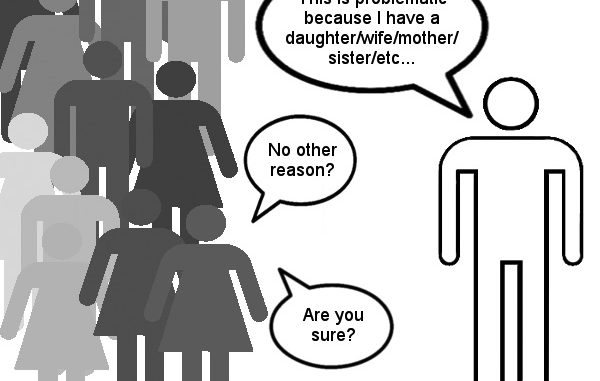
By Mackenzie Herring
In light of the recent allegations against Harvey Weinstein and the resulting national conversation being held by victims of sexual assault across the nation, many communities are actively addressing the way they react to crimes of this nature.
College campuses are one of many institutions that have an obligation to reflect on how victims are treated on their premises. With 20 percent of women experiencing some form of sexual assault when entering college, according to the Association of American Universities, faculty and students have a responsibility to address these crimes and prevent them from happening in the future. Too often do “allies” end up discouraging the victim or protecting the assaulter, even without shaming the survivor. Even well-meaning responses are often misguided or are followed by a severe lack of meaningful action taken by self-proclaimed allies to victims.
When looking at responses to these allegations from male sources, one thing becomes abundantly clear: much of male allyship is deeply flawed and needs to be improved in all areas, including at Lewis & Clark. It is important to note before continuing that while not all sexual assault perpetrators are men, the majority are, and the advice on how to be an ally to victims can be applied to all genders.
The most popular and well known mistake is men citing their relationships with women as reasoning behind their empathy with the survivors and frustration towards the attackers. In a recent interview with ABC news, Matt Damon exemplified this issue while talking about Weinstein, saying that he never abided by that behavior, but was even more angered and terrified by this behavior because he had daughters. The implications of and the logic behind this statement and others like it is nonsensical and dangerous. Sexual assault should be taken seriously because it is criminal and inhumane, not because they have relationships with women.
A seemingly obvious but apparently difficult way to practice allyship is not tolerating predatory behavior from these men, regardless of your connection to the assaulter. Often, bystanders are nervous about interfering due to their relationship to the perpetrator and want to protect themselves. On campuses, other students are most likely to be around when an assault is happening. Whether or not they decide to intervene is vital in defending the victim or reporting the crime.
Another way sexual assault may be supported in communities is the refusal to acknowledge inappropriate conduct or attributing this inaction to a lack of first hand account. In the interview mentioned above, Damon also recalled that he was aware Weinstein was a “womanizer” and that there was an incident with Gwyneth Paltrow, his coworker at the time, but assumed the issue had been resolved as the two went on to work together in the film “The Talented Mr. Ripley.” Damon also mentioned — rather defensively — that he had never visibly seen any assault happening.
Not all survivors speak about their experiences and certainly not all attacks are public. This hindsight can easily be attributed to the prior lack of public allegations made against Mr. Weinstein, and while it is much more difficult to speak out and criticize prior to a predator’s downfall compared to when claims are initially trickling in, action taken early can save pain and suffering for future victims. “Rumors” of sexual assault must be taken seriously in order to prevent us from coming to regret our negligence by not bringing assaulters to justice sooner.
It’s important for college students to recognize this flawed allyship and its implications. Peers are often the first witnesses to these accounts or are more likely to know of predatory behavior committed within their own community.
With such an ingrained cyclical problem within society, the best way to break the wheel is by targeting the component with the most power. In male dominated industries and within patriarchal societies overall, the crucial component in affecting change lie with the development of a true male ally.
Subscribe to the Mossy Log Newsletter
Stay up to date with the goings-on at Lewis & Clark! Get the top stories or your favorite section delivered to your inbox whenever we release a new issue.

Leave a Reply